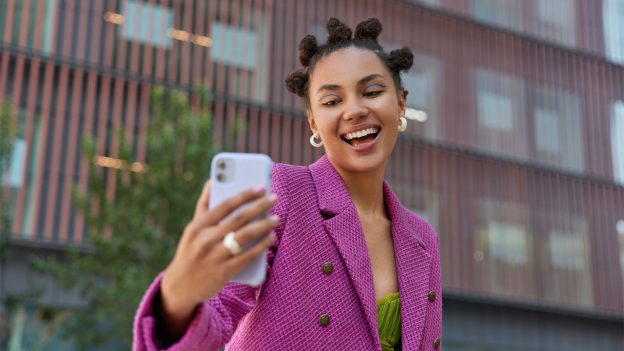So, you’ve probably heard all the buzz about influencers taking over social media and the impact they have on our lives. But have you ever wondered if their reign in the digital world could be threatened by the rise of artificial intelligence (AI)? It’s a question that’s been floating around lately, as brands and marketers explore the possibilities of using AI-generated content to engage with audiences. In this article, we’ll take a closer look at the growing influence of AI and whether it could potentially replace the human touch of influencers. Buckle up, because this might just change the game!
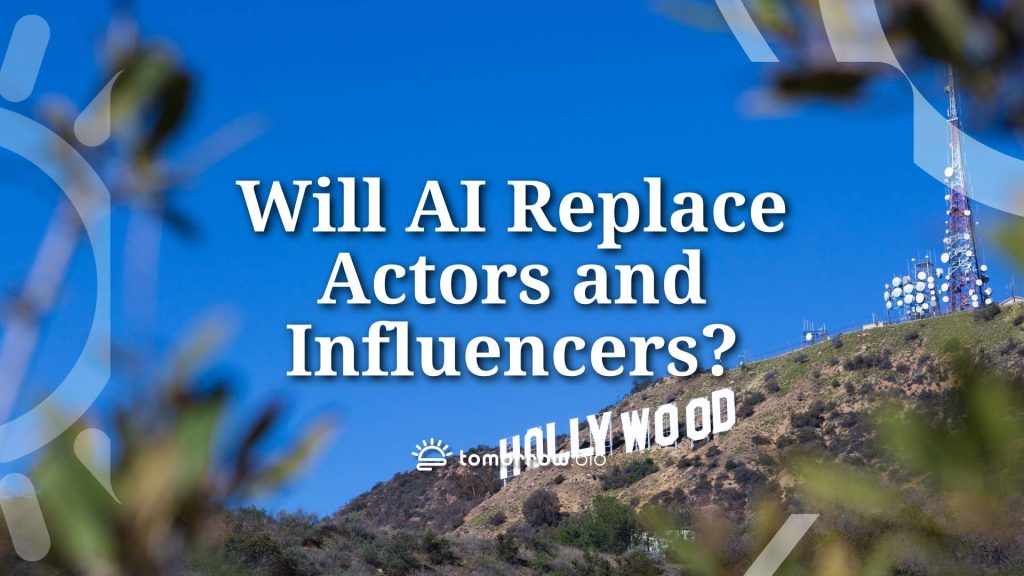
This image is property of global-uploads.webflow.com.
The Rise of AI in Influencer Marketing
In recent years, the field of influencer marketing has witnessed a significant transformation with the advent of artificial intelligence (AI). AI technologies have revolutionized various industries, and influencer marketing is no exception. From AI-generated content to AI-powered platforms, these technological advancements have had a profound impact on the way influencers and brands collaborate, the content created, and the overall effectiveness of influencer marketing campaigns.
AI’s Impact on Influencer Marketing
The integration of AI in influencer marketing has brought about numerous benefits, making it a game-changer in the industry. AI algorithms have the capability to analyze large amounts of data, providing valuable insights into audience behavior, preferences, and trends. By leveraging this information, influencers and brands can make data-driven decisions to optimize their campaigns and enhance their overall effectiveness.
The Benefits of AI in Influencer Marketing
One of the key advantages of AI in influencer marketing is its ability to streamline the collaboration process between influencers and brands. AI-powered platforms can match influencers with relevant brands based on their audience demographics, interests, and values, eliminating the time-consuming and often challenging task of manually scouting for suitable partnerships.
Additionally, AI algorithms can analyze the engagement metrics, reach, and performance of influencers, enabling brands to select the most effective influencers for their campaigns. This data-driven approach ensures that brands are investing their resources in influencers who can generate the highest return on investment (ROI) and maximize the impact of their marketing efforts.
Moreover, AI technologies enable influencers to optimize their content creation process. AI-generated content has the potential to transform the industry by creating personalized, high-quality content at scale. With AI tools, influencers can automate various aspects of content creation, such as image editing, video editing, and even writing captions. This not only saves time but also allows influencers to focus on what they do best – connecting with their audience and delivering authentic, engaging content.
Challenges and Limitations of AI in Influencer Marketing
Despite the numerous benefits that AI brings to influencer marketing, there are also challenges and limitations that must be acknowledged. One of the primary concerns is the potential loss of authenticity and human touch in content creation. While AI-generated content can be highly efficient, there is a risk of it lacking the personal touch and genuine connection that human influencers bring to the table.
Another challenge is the ethical considerations surrounding AI-powered influencer marketing. Transparency and disclosure become crucial factors, as AI-generated content might blur the line between organic and sponsored posts. Moreover, data privacy and security issues must be carefully addressed to ensure that influencers’ and audiences’ information is protected.
AI-Generated Content: A Game Changer for Influencers
The Emergence of AI-Generated Content
With the evolution of AI technologies, the emergence of AI-generated content has become a significant trend in influencer marketing. AI tools can now generate visually appealing images, videos, and written content that closely mimic human creativity. This breakthrough has opened new possibilities for influencers to create content more efficiently and effectively.
Advantages and Disadvantages of AI-Generated Content for Influencers
AI-generated content offers several advantages for influencers. Firstly, it enables influencers to generate a higher volume of content with greater speed and efficiency. AI-powered tools can automate time-consuming tasks such as image editing and caption writing, allowing influencers to focus on other aspects of their work.
Another advantage is the potential for AI-generated content to enhance audience engagement. AI algorithms analyze audience data to understand preferences, interests, and trends, enabling influencers to tailor their content to resonate with their target audience. This customization can result in higher engagement rates, increased follower growth, and ultimately, more effective influencer marketing campaigns.
However, one of the main disadvantages of relying solely on AI-generated content is the potential loss of authenticity and the human touch. Audiences often connect with influencers because they value their unique perspectives, personalities, and authenticity. AI-generated content may lack that personal touch, leading to a less engaged and loyal audience. It is crucial for influencers to strike a balance between AI-generated content and maintaining their own genuine voice and connection with their audience.
How Influencers Can Adapt to AI-Generated Content
To adapt to the AI-generated content landscape, influencers must carefully integrate AI tools into their content creation process while preserving their authenticity. It is essential for influencers to use AI as a tool to enhance their creativity, rather than relying solely on it. By leveraging AI-generated content as a starting point, influencers can add their personal touch, stories, and insights to create content that truly resonates with their audience. This combination of AI-generated content and human creativity can produce a powerful and compelling content strategy.
Additionally, influencers can use AI to better understand their audience’s preferences and interests. By analyzing the data provided by AI algorithms, influencers can gain valuable insights into their audience’s behavior, enabling them to create content that is both personalized and relevant.
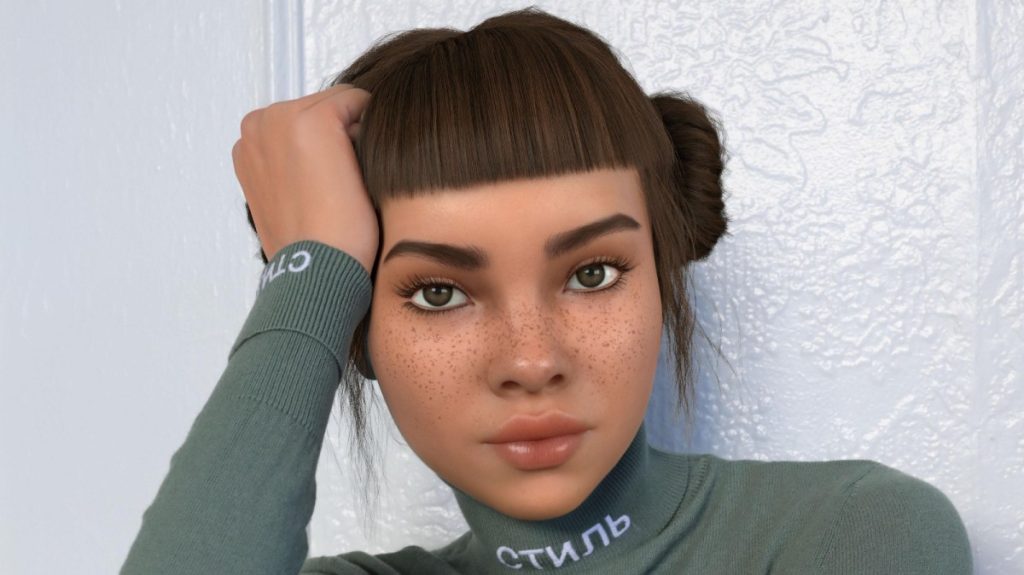
This image is property of i0.wp.com.
AI-Powered Influencer Platforms: Reinventing the Influencer Industry
The Evolution of Influencer Platforms
Influencer platforms have evolved significantly over the years, and AI has played a crucial role in this transformation. Traditional influencer platforms relied heavily on manual processes to connect influencers with brands, requiring extensive research and negotiation. However, AI-powered influencer platforms have revolutionized this process, making it more efficient, targeted, and data-driven.
AI-Powered Platforms and Their Functionality
AI-powered platforms leverage advanced algorithms to analyze vast amounts of data, allowing for highly targeted influencer-brand collaborations. These platforms match influencers with brands based on various factors such as audience demographics, engagement metrics, and brand compatibility. By automating the matching process, AI-powered platforms save time and resources for both influencers and brands, making collaborations more efficient and effective.
Moreover, AI-powered platforms provide influencers and brands with valuable insights and analytics. Influencers can track the performance of their content, monitor engagement metrics, and gain a deeper understanding of their audience’s preferences. Brands, on the other hand, can assess the effectiveness of their influencer marketing campaigns, measure ROI, and make data-driven decisions for future collaborations.
The Role of AI-Powered Platforms in Influencer-Brand Collaborations
AI-powered platforms have revolutionized the way influencers and brands collaborate, making the process more streamlined and effective. By automating the matching process, these platforms enable influencers and brands to connect with relevant partners more efficiently. This not only saves time but also ensures that collaborations are based on relevant audience demographics, interests, and values.
Additionally, AI-powered platforms facilitate better communication and collaboration between influencers and brands. These platforms provide a centralized hub for influencers and brands to communicate, negotiate contracts, and track campaign performance. This level of transparency and efficiency improves the overall experience for influencers and brands, leading to stronger and more successful partnerships.
Is AI a Threat to Human Influencers?
The Unique Value of Human Influencers
While AI has undoubtedly brought significant advancements to the field of influencer marketing, it is essential to recognize the unique value that human influencers bring to the table. Human influencers possess the ability to form genuine connections with their audience, building trust and loyalty over time. These authentic relationships cannot be easily replicated by AI-generated content or algorithms.
Human influencers understand their audience’s needs, preferences, and pain points on a deeper level. They can empathize with their audience, share personal experiences, and provide valuable insights and recommendations. This level of human connection and understanding is often what sets influencers apart from AI-generated content.
Authenticity and Trust: The Human Factor
Authenticity and trust are vital components of influencer marketing. Audiences are more likely to trust recommendations and endorsements from influencers they have formed a connection with. Human influencers have the ability to share authentic stories, emotions, and experiences, creating a sense of relatability with their audience. This authenticity fosters trust and credibility, making influencer marketing campaigns more effective.
While AI-generated content can replicate certain aspects of content creation, it often lacks the nuances and human touch that make content truly authentic. Audiences can often distinguish between AI-generated content and content created by human influencers, further emphasizing the unique value that human influencers bring to the industry.
Can AI Really Replace Human Influence?
Despite the advancements in AI technology, it is unlikely that AI will completely replace human influencers. While AI-generated content can be efficient and provide valuable data insights, it lacks the human touch, emotions, and personal connections that make influencer marketing so powerful.
There will always be a demand for authentic human influencers who can connect with their audience on a personal level. Human influencers have the ability to adapt, evolve, and provide unique perspectives that AI cannot replicate. AI can enhance and optimize the influencer marketing process, but it cannot completely replace the human influence and authenticity that drives successful campaigns.

This image is property of cdn.shopify.com.
Enhancing Influencer-Brand Partnerships with AI
AI’s Role in Streamlining Influencer-Brand Collaborations
AI has played a significant role in streamlining the influencer-brand collaboration process. AI-powered platforms and algorithms have automated many aspects of partnership matching, making it faster, more accurate, and data-driven. Brands can leverage AI tools to identify influencers with specific audience demographics, interests, and values, ensuring that collaborations are aligned with their target market.
Furthermore, AI can facilitate better communication and collaboration between influencers and brands. AI-powered platforms provide a centralized hub for influencers and brands to negotiate contracts, share campaign briefs, and track performance. This level of transparency and efficiency improves the overall partnership experience, leading to more successful and impactful campaigns.
Data-Driven Decision Making
One of the significant advantages of AI in influencer marketing is its ability to analyze vast amounts of data and provide valuable insights. By leveraging AI algorithms, brands can gain a deeper understanding of their target audience’s preferences, behavior, and trends. This data-driven approach enables brands to make informed decisions when selecting influencers, creating content strategies, and measuring the success of their campaigns.
Influencers can also benefit from data-driven decision making. By analyzing audience data provided by AI algorithms, influencers can gain valuable insights into their audience’s preferences, interests, and engagement patterns. This information allows influencers to tailor their content, optimize their strategies, and deliver more personalized and effective campaigns.
Improved Targeting and Personalization
AI-powered tools have significantly improved the targeting capabilities in influencer marketing. By analyzing audience data and preferences, AI algorithms can help brands identify influencers who are the best fit for their target market. This level of precision ensures that the message reaches the right audience, maximizing the impact of influencer marketing campaigns.
Moreover, AI-powered platforms facilitate personalized content creation. Influencers can leverage AI-powered tools to analyze audience data and tailor their content to resonate with their audience’s preferences. This customization enhances audience engagement, resulting in higher conversion rates and stronger brand loyalty.
Ethical Considerations in AI-Powered Influencer Marketing
Transparency and Disclosure
One of the key ethical considerations in AI-powered influencer marketing is transparency and disclosure. As AI-generated content becomes more prevalent, it is crucial for influencers and brands to clearly disclose when content is generated or assisted by AI tools. This transparency ensures that audiences are aware of the presence of AI in content creation and can make informed decisions about the authenticity and credibility of the content they consume.
Clear disclosure also helps maintain trust and credibility between influencers, brands, and their audience. The Federal Trade Commission (FTC) and other regulatory bodies have issued guidelines on disclosure in influencer marketing, and it is essential for influencers and brands to adhere to these guidelines to maintain ethical practices.
Data Privacy and Security
Another ethical consideration is the protection of data privacy and security. With the use of AI-powered tools, influencers and brands collect significant amounts of data about their audience. It is crucial to handle this data with the utmost care and to implement robust data privacy and security measures to ensure the information is not misused or compromised.
Influencers and brands must be transparent about the data they collect, how it is used, and how it is protected. Obtaining explicit consent from audiences, implementing secure data storage systems, and regularly auditing data practices are essential steps to ensure ethical data handling in AI-powered influencer marketing.
The Role of Regulations and Guidelines
The field of AI-powered influencer marketing is relatively new, and regulations and guidelines continue to evolve. Regulatory bodies, such as the FTC, are actively monitoring the industry to ensure ethical practices and protect consumers. It is essential for influencers and brands to stay informed about the latest regulations and guidelines and adapt their practices accordingly.
Additionally, self-regulation within the industry is crucial. Influencer marketing associations, collaborations, and industry leaders play a significant role in establishing ethical standards and best practices. By promoting transparency, authenticity, and responsible use of AI in influencer marketing, the industry can build trust and credibility with audiences and ensure long-term success.
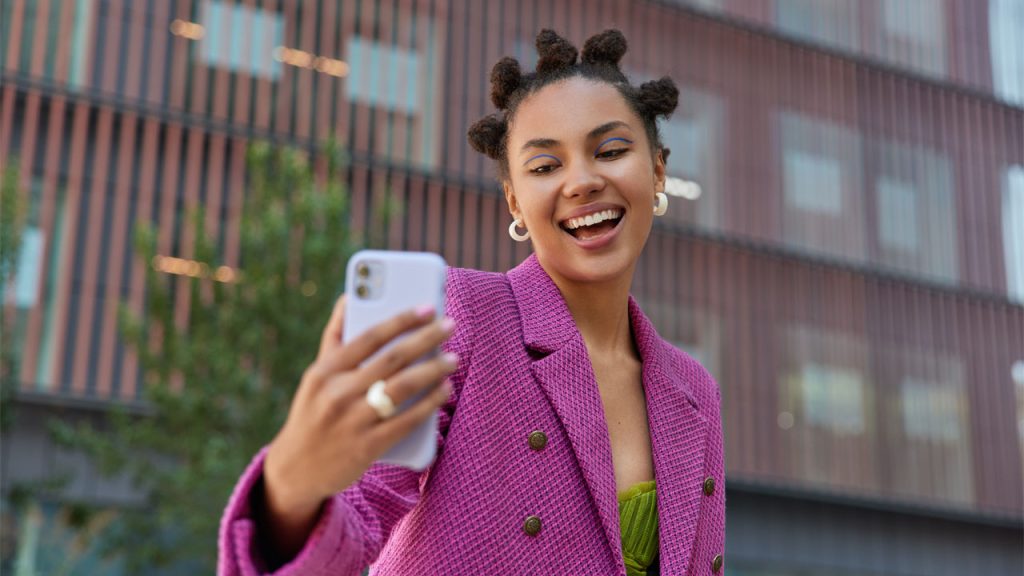
This image is property of typecast.ai.
The Future of Influencer Marketing in an AI-Driven World
The Coexistence of AI and Human Influencers
The future of influencer marketing lies in the coexistence of AI and human influencers. AI technologies will continue to advance, providing more sophisticated tools and algorithms to enhance the influencer marketing process. However, the unique value that human influencers bring – authenticity, emotions, and personal connections – cannot be easily replicated by AI.
In the AI-driven world of influencer marketing, human influencers will remain at the forefront, connecting with audiences on a personal level and delivering authentic content. AI will serve as a powerful tool to optimize and streamline influencer marketing campaigns, providing data-driven insights and automating certain aspects of content creation and collaboration.
The Redefined Role of Influencer Marketing
In an AI-driven world, influencer marketing will take on a redefined role. Influencers will become more than just content creators and endorsers – they will become trusted advisors and strategic partners for brands. With AI-powered platforms and data-driven insights, influencers can provide valuable feedback and recommendations to brands, helping them refine their marketing strategies and connect with their target audience more effectively.
Moreover, influencer marketing will become more personalized and targeted. AI-powered tools will enable influencers and brands to create hyper-personalized content that resonates with specific audience segments. This level of customization will strengthen brand loyalty and drive higher levels of audience engagement.
Adapting to the AI-Driven Landscape
To thrive in an AI-driven influencer marketing landscape, influencers must adapt and embrace these technological advancements. It is crucial for influencers to leverage AI tools to enhance their creativity, streamline their content creation process, and optimize their campaigns. By using AI-generated content as a starting point and adding their unique insights and personal touch, influencers can create authentic and engaging content that resonates with their audience.
Additionally, influencers must stay informed about the latest advancements and best practices in AI-powered influencer marketing. Continuous learning, experimentation, and collaboration with AI experts will ensure that influencers are at the forefront of industry trends and can make the most of the opportunities presented by AI.
Case Studies: AI Innovation in Influencer Marketing
Successful Implementation of AI in Influencer Campaigns
Several brands have successfully implemented AI in their influencer marketing campaigns, leveraging AI-generated content, and AI-powered platforms to achieve remarkable results. For example, a beauty brand utilized AI-generated content to create personalized makeup tutorials for different skin tones and preferences. This campaign resulted in higher engagement, increased sales, and positive brand sentiment.
Another case study involves the use of AI-powered platforms to match influencers with brands based on shared values and interests. By utilizing AI algorithms, the brand was able to identify influencers who were passionate about sustainability and eco-friendly practices, resulting in authentic collaborations that resonated with their target audience.
These case studies demonstrate the immense potential of AI in influencer marketing and highlight the benefits of incorporating AI technologies into influencer campaigns.
Lessons Learned and Best Practices
Through these case studies and the overall evolution of AI in influencer marketing, several lessons and best practices have emerged. Firstly, it is crucial to strike a balance between AI-generated content and human creativity. While AI tools can enhance efficiency, influencers must ensure that their personal touch, authenticity, and human connection remain at the forefront of their content creation.
Transparency and disclosure are also vital considerations. Influencers must clearly disclose when AI tools are used in content creation, ensuring that the audience is aware of the presence of AI and can make informed decisions about the authenticity of the content.
Moreover, continuous learning, experimentation, and collaboration are essential. The field of AI is constantly evolving, and influencers must stay informed about the latest advancements and trends. Collaborating with AI experts and learning from industry leaders can help influencers adapt and thrive in an AI-driven influencer marketing landscape.
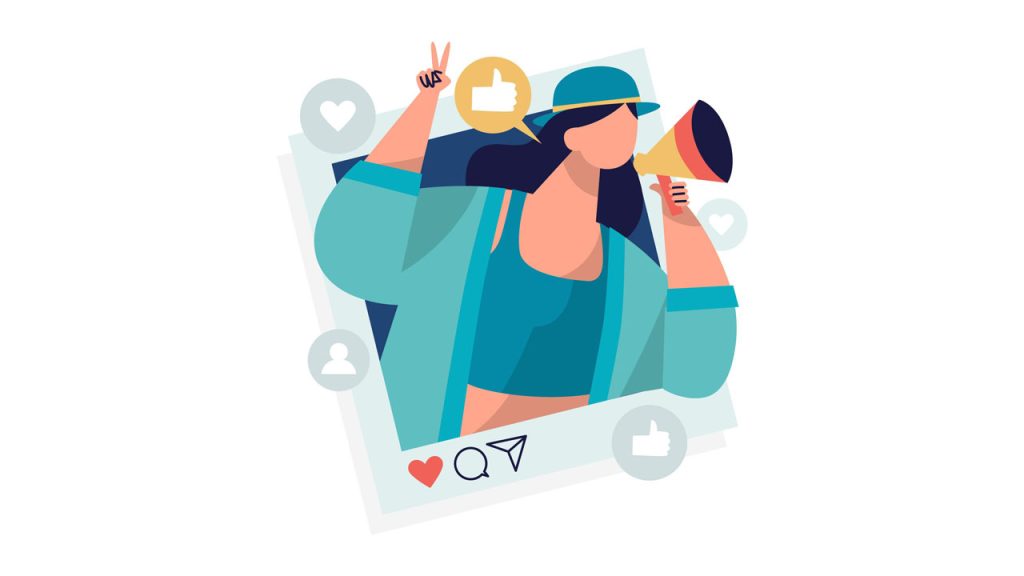
This image is property of typecast.ai.
Conclusion
The rise of AI in influencer marketing has brought about significant transformations, revolutionizing the way influencers and brands collaborate, and the content created. AI-generated content, AI-powered platforms, and data-driven decision making have become integral components of influencer marketing strategies.
While AI brings numerous benefits, including enhanced targeting, efficiency, and personalization, human influencers remain essential for creating authentic connections and building trust with their audience. The future of influencer marketing lies in the coexistence of AI and human influencers, where AI serves as a tool to optimize and streamline the process.
As the industry continues to evolve, ethical considerations such as transparency, data privacy, and adherence to regulations will become increasingly important. Influencers and brands must carefully navigate the AI-driven landscape, leveraging the potential of AI while prioritizing authenticity, trust, and genuine human connections.
In conclusion, AI is a powerful ally in influencer marketing, but it cannot replace the unique value that human influencers bring to the industry. By embracing AI technologies, influencers can enhance their creativity, streamline their processes, and deliver more personalized and effective content. With the right balance and ethical considerations, the future of influencer marketing in an AI-driven world is indeed promising.
